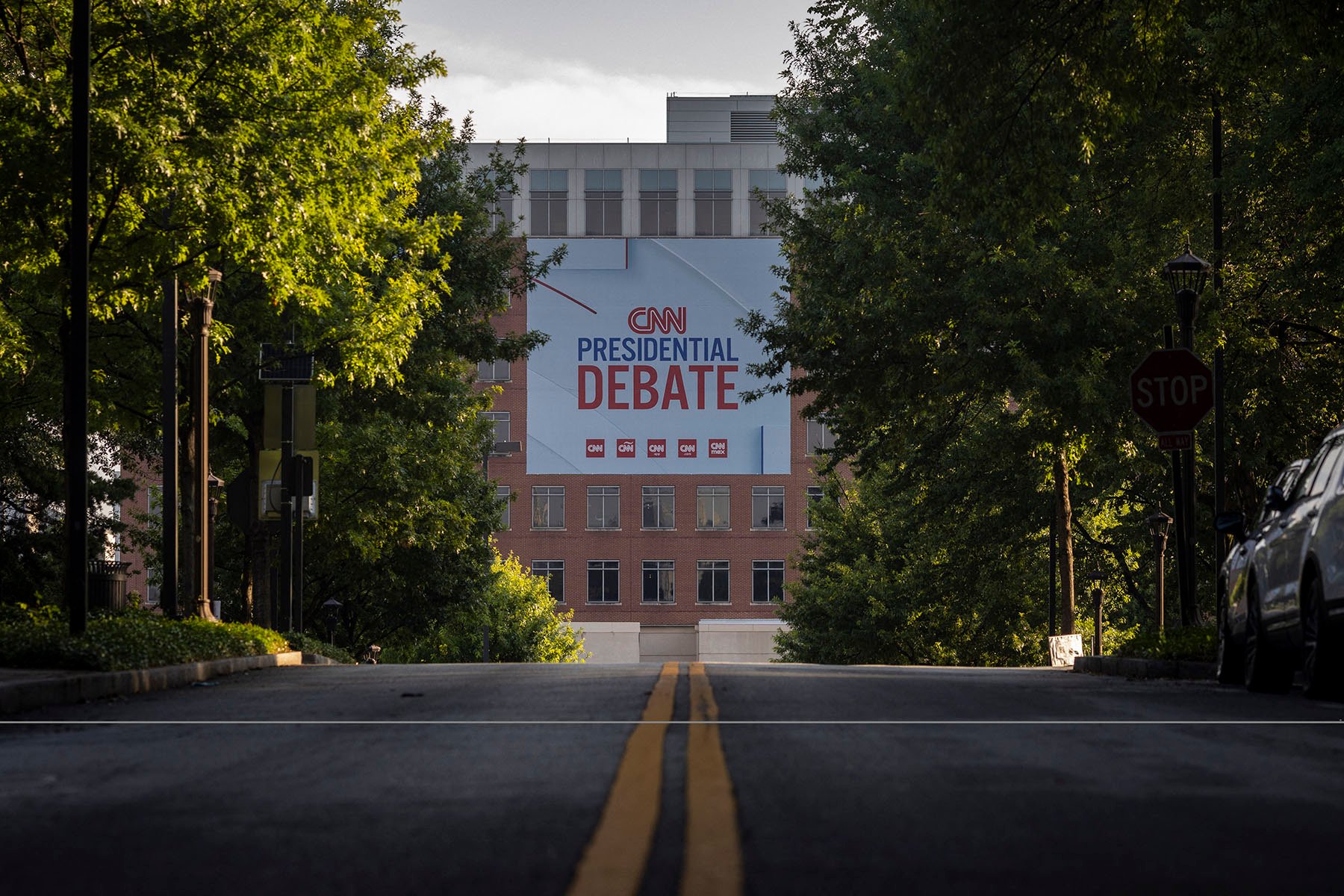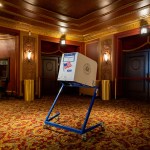Ahead of the first presidential debate of the 2024 election cycle, 90 disability organizations signed onto a letter to host CNN, requesting that the debate be made more accessible and that moderators consider topics relevant to the disability community.
“We hope that CNN will really listen to us when we say that adding these accessibility features to their debate coverage will lead to a more inclusive democracy and a more informed electorate,” said Maria Town, president of the American Association of People with Disabilities (AAPD), one of the most prominent cross-disability groups in the United States and the letter’s lead author.
President Joe Biden and former President Donald Trump will debate Thursday for the first time in nearly four years. The debate, hosted by CNN in Atlanta, will be moderated by Jake Tapper and Dana Bash. Unlike in past years, it won’t be conducted in front of a live audience.
There are approximately 30 million disabled adults in the United States, and they do not appear to favor a particular party. AAPD is nonpartisan, and Town highlighted that including disabled Americans in the democratic process is not a partisan endeavor.
“[Disabled people] are an incredibly diverse group of voters. Disability exists in every community. So when you’re talking about disabled voters, you’re also talking about women voters, Black voters, you’re talking about older adults, you’re talking about younger people,” Town said. Other signatories include the National Association of the Deaf, the National Disability Rights Network and The Arc of the United States.
The letter asks CNN to provide American Sign Language interpreters in different capacities for deaf and hard of hearing viewers and for CNN to ensure captions are added when they upload clips of the debate. No debate host has previously provided American Sign Language in any capacity, except for in person attendees.
As of publication, CNN had not responded to multiple attempts at contact by the American Association of People with Disabilities ahead of the debate, according to Town.
When The 19th reached out for comment, a CNN representative did respond, but did not answer any questions. They said they will have closed captioning on the television broadcast — as the network routinely does. They also provided brief instructions on how to turn closed captioning on.
In 2016 and 2020, DPAN, an online-only Deaf streaming platform and American Sign Language captioning service, independently provided their own livestream of the debates with American Sign Language interpreters. DPAN’s website and social media do not indicate that they will be providing the service for this election cycle, and they did not respond to a request for comment.
Town praised DPAN’s previous debate livestreams, while expressing frustration that they had to step in at all. According to Town, the responsibility to make the debate content accessible lies with the networks hosting the debates.
“Once again, disabled people themselves have to figure out how to mobilize their resources in order to meet a communication obligation that the network should be addressing itself,” she said.
It is unclear what topics will be covered during the debate or if anything particularly relevant to disability communities will be asked by the moderators. The letter to CNN suggests a wide range of topics, including funding for home care and special education services, reproductive rights, the ongoing COVID-19 pandemic and the low availability of accessible housing.
A 2021 report from the federal Election Assistance Commission indicated that disabled Americans are 7 percent less likely to vote than their non-disabled peers. Lack of access to information was one reason for the gap cited in the report.
Many disabled voters also lack confidence that politicians care about them or their issues. A 2023 poll from progressive firm Data for Progress found that two out of three disabled voters believe that politicians “don’t care about the disabled community.” Data for Progress is one of the only firms that polls disabled people as a demographic.
Information access is a particular issue in deaf and hard of hearing communities. Lack of language early in life, because hearing parents do not know their baby is deaf or because they do not know or use sign language, can lead to later difficulties with reading and writing. Deaf advocates and researchers call this phenomenon “language deprivation.”
Another barrier is that American Sign Language and English are not at all interchangeable — understanding one does not guarantee a person can understand the other, and for many in deaf communities, English is essentially a second language.
“American Sign Language and English are two very different and distinct languages. ASL isn’t a direct translation of English; it has its own grammar, syntax and cultural nuances. ASL interpreters can convey these subtleties better than captions, which may not capture the full meaning or emotional tone of the content,” said Bobbie Beth Scoggins, interim director of the National Association of the Deaf, one of the preeminent organizations by and for Deaf Americans. They are also signatories of the letter to CNN.
Scoggins pointed out that live captions are often incomplete and lag significantly in conveying crucial information.
“While closed captioning is valuable and necessary for many, ASL interpreters on TV fulfill a different and equally essential role by providing direct access to information in their primary language, promoting inclusivity, and ensuring cultural and linguistic representation,” Scoggins said.
Town said the letter’s requests reflect how the disability community has shifted in its expectations of candidates and elected officials, and that the community is committed to stronger advocacy for civic engagement and accessible voting.
“For a long time, whether it’s been presidential debates or town halls, if a candidate even said the word ‘disability,’ that was a big deal,” Town said “As a community, we have come farther than that. We are engaged politically. We are out there. We are voting. We are a constituency that candidates need to address. We should no longer accept [candidates] just saying the word ‘disability.’”
Sean Forbes, CEO of DPAN, responded to a request for comment after the publication of this piece. He told The 19th that DPAN will not be offering debate interpretation this year because they did not secure funding for it.
In 2016, DPAN had an angel investor who helped them fund ambitious projects at cost. Debate interpretation was “an astounding success,” according to Forbes. They had over 500,000 viewers across different platforms and their website crashed because it got more traffic than it could handle.
“Ultimately, the 2016 debates were funded out of our pocket in hopes of bigger support from entities like CNN, NBC, and ABC to provide this,” Forbes said. That support did not manifest, he said.
In 2020, they did the debate interpretation again, partially funded by a grant, with the hopes that major networks would follow suit. Once again, that support did not manifest. DPAN did not secure funding to interpret the 2024 debates. But according to Forbes, they shouldn’t have to.
“We need entities like CNN, Netflix, ABC, ESPN, LiveNation, etc. to jump on board and partner with organizations like ours so we can work together to provide ASL access. We don’t expect them to know what to do, how to provide it, or what the best practices are, but we want them to know they can always reach out to us and we will do our best to make sure that access happens,” Forbes said.







